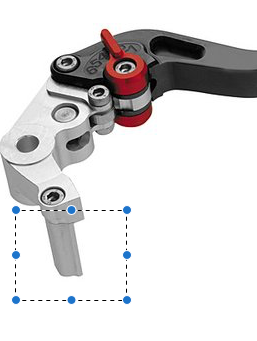I very recently did a K4/K5 GSXR 750 front end swap on my 01' SVS. I took it out on two test rides and on the second the brakes locked up which resulted in a low side around a turn.
As far as braking goes I have:
EBC HH pads
Tokico gold calipers
Stock rubber lines
Stock K4/K5 master & stock lever
I rebuilt the calipers myself and bleed the system with a can of ATE-200 DOT4 brake fluid that I use in all of my vehicles.
This crash was partially my fault as I approached a stop sign a block from my house and noticed the brakes were dragging- instead of pulling over I decided to cruise slowly home. Dumb move. Luckily I'm not injured (all gear did it's job, just sore) and my frame slider took 99% of the abuse only scuffing my rear plastics. FYI I contacted T-Rex frame sliders to purchase replacements and they are sending me free units -- great service.
With that all said I'm kind of afraid to use any part of the current braking system that I have- I got lucky I wasn't going faster when they decided to lock up. Does anyone have a good reason as to why the brakes locked up? I rode for 20-30 minutes before this happened without a problem.
My first reaction was to buy R6 calipers as I know these are popular among SV riders as well, but a brief google search tells me that they have lock-up issues as well.
I'm looking at a complete 2014 GSXR Brembo setup on eBay. Any issues with these? Can I even adapt them to my forks?
Any advice is appreciated as most threads I found online are just people speculating and a blanket statement not to use aftermarket levers.
As far as braking goes I have:
EBC HH pads
Tokico gold calipers
Stock rubber lines
Stock K4/K5 master & stock lever
I rebuilt the calipers myself and bleed the system with a can of ATE-200 DOT4 brake fluid that I use in all of my vehicles.
This crash was partially my fault as I approached a stop sign a block from my house and noticed the brakes were dragging- instead of pulling over I decided to cruise slowly home. Dumb move. Luckily I'm not injured (all gear did it's job, just sore) and my frame slider took 99% of the abuse only scuffing my rear plastics. FYI I contacted T-Rex frame sliders to purchase replacements and they are sending me free units -- great service.
With that all said I'm kind of afraid to use any part of the current braking system that I have- I got lucky I wasn't going faster when they decided to lock up. Does anyone have a good reason as to why the brakes locked up? I rode for 20-30 minutes before this happened without a problem.
My first reaction was to buy R6 calipers as I know these are popular among SV riders as well, but a brief google search tells me that they have lock-up issues as well.
I'm looking at a complete 2014 GSXR Brembo setup on eBay. Any issues with these? Can I even adapt them to my forks?
Any advice is appreciated as most threads I found online are just people speculating and a blanket statement not to use aftermarket levers.






